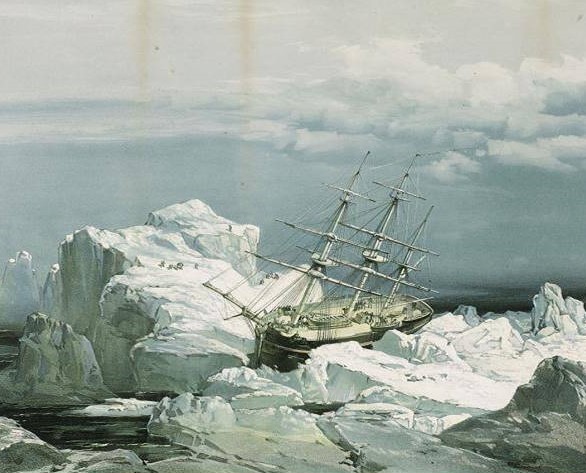The remarkable HMS Investigator: lost and found, twice
In 1848 the British Admiralty embarked on the most extensive search-and-rescue mission in history for the 129 officers and men of the Royal Navy’s “Franklin expedition” which had disappeared in the Arctic while seeking a Northwest Passage to the Pacific. The Admiralty commissioned the construction of two ships to support the search, one being HMS Investigator.
The lecture will describe the voyage of the Investigator whose commander, Robert McClure, recklessly abandoned the search for the missing expedition in order to pursue a personal ambition to discover the Northwest Passage. McClure discovered a Passage in 1850, only for his ship and crew to become ice-locked and lost in a remote part of the Arctic. By 1853 they were on the verge of death when found by another Royal Navy squadron; the Investigator was abandoned to her fate. Then, 157 years later in 2010, the Investigator was found intact at the gateway to the Passage, followed shortly after by the discovery of the two ships that she had been sent to find in 1850.
The tale is of the survival of a remarkable British ship whose place in history is as illustrious as any of the other great icons of the Royal Navy.
Keith Millar is Professor Emeritus and Honorary Senior Clinical Research Fellow College of Medical, Veterinary and Life Sciences University of Glasgow.
‘After a doctoral degree in physiological psychology at the University of Dundee, my first post was with the Medical Research Council in Cambridge where I worked in clinical trial research. I moved then to a lectureship in the Psychiatry Department of University of Nottingham Medical School, and then to a senior lectureship and then chair in the Department of Psychological Medicine (Psychiatry) at the University of Glasgow Medical School. As an act of folly in my early forties, I decided to undertake clinical training while still fulfilling my academic and research duties at Glasgow. I qualified successfully, the only side-effect being the added achievement of a full head of grey hair.
My sole connection to the Royal Navy is via my late uncle Ernest who was Surgeon Commander on board the battleship HMS Barham. Ernest was one of the 862 men who did not survive the detonation of the Barham’s magazines when torpedoed in the Mediterranean during WW2. My interest in Naval history, and more specifically Naval medical history, arose in 2012 from an investigation with my colleague Prof Adrian Bowman FRS into the supposed lead poisoning of the Royal Navy’s “Franklin expedition”: all 129 officers and men met a fatal end in the Arctic in the mid-nineteenth century. Our published findings did not support lead poisoning and led to considerable media coverage which led, in turn, to our broader research into the health of the Victorian Navy. We are now contracted by the Canadian government to work with state archaeologists on the analysis of human remains recovered from the wrecks of Royal Naval ships in Canadian arctic waters.’
Please book by 1pm on the day of the lecture.
Members: Free
Non-Members: £5 per lecture
